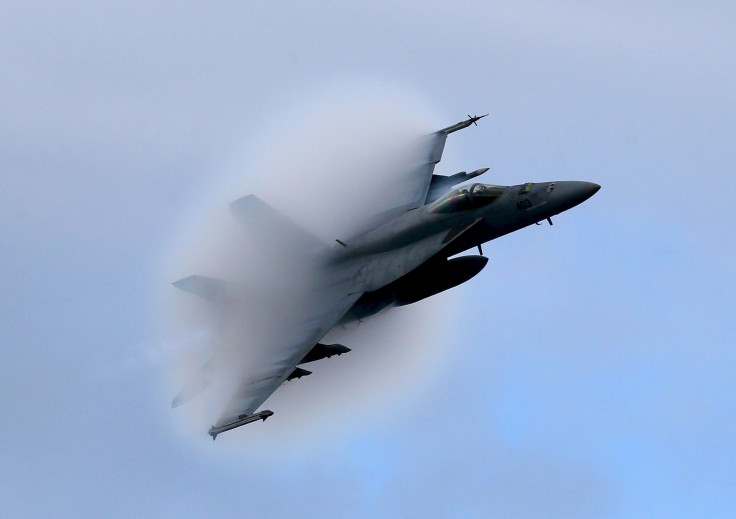Boeing F/A-18 Super Hornet Tops US Navy Unfunded List In Defense Budget

The U.S. Navy placed 14 F/A-18 Super Hornets jets on its list of projects it cannot afford to fund in the 2017 defense budget, landing a further blow to workers at Boeing’s St. Louis manufacturing plant, who hoped the funding would have kept the plant open past the turn of the decade. Along with the F/A-18s, the Navy will also have to do without 31 other items, including a destroyer and two aircraft carrier-based F-35 joint strike fighters.
The Super Hornets were listed as the No. 1 priority on the unfunded list, meaning that if $1.54 billion can be found, they will be built, according to a Defense news report Wednesday evening. Congress can make the choice to add extra money to the Navy’s budget, take money from other projects or simply ignore the aircraft altogether.
Navy officials have been keen to ensure the military branch could afford more F/A-18s from Boeing amid a bombing campaign against the Islamic State group in Iraq and Syria, air warfare director Rear Adm. Mike Manazir told the Senate Armed Service Committee in November.
"It's a complex formula of keeping our current inventory flying, getting them out of the [life extension] depots, buying enough Super Hornets to replace what we've been using every year in the wars in Iraq, Syria and Afghanistan, previously, and then buying capability through [the Joint Strike Fighter program]," Manazir said.
While defense budget negotiations for 2017 will be ongoing between now and the end of the year, Boeing will be forced into the difficult decision of deciding whether it should invest hundreds of millions of dollars in keeping the manufacturing plant going with no firm customers on the horizon.
Despite the Navy already setting aside funding two F/A-18s in the 2017 budget and another 14 for 2018, Boeing doesn't have any other deals for the aircraft to keep its workers busy into the next decade.
A multibillion-dollar deal between Boeing and Kuwait for the F/A-18 aircraft was expected to keep the production line open past 2020, but a political roadblock in Congress has prevented it from moving forward. All arms exports must be approved by the Office of the Secretary of Defense, the Departments of Commerce or State and the White House. Complaining of the delays, Kuwait turned to Italy and the Typhoon Eurofighter instead, signing an $8.7 billion deal.
While the Boeing deal could still go ahead, it’s unlikely that Kuwait will want to buy two sets of very similar aircraft operating at the same time. Additionally, the Middle Eastern country, which counts oil as the main resource funding its budget, may not be able to afford it as the price of black gold hovers at historic lows.
Other items on Navy's unfunded list include $23 million to buy another Surface Electronic Warfare Improvement Program (SEWIP) Block 3 electronic warfare system; more Mark 54 torpedoes, more AIM-9X air-to-air missiles; and more Joint Direct Attack Munitions (JDAM) parts.
© Copyright IBTimes 2024. All rights reserved.






















